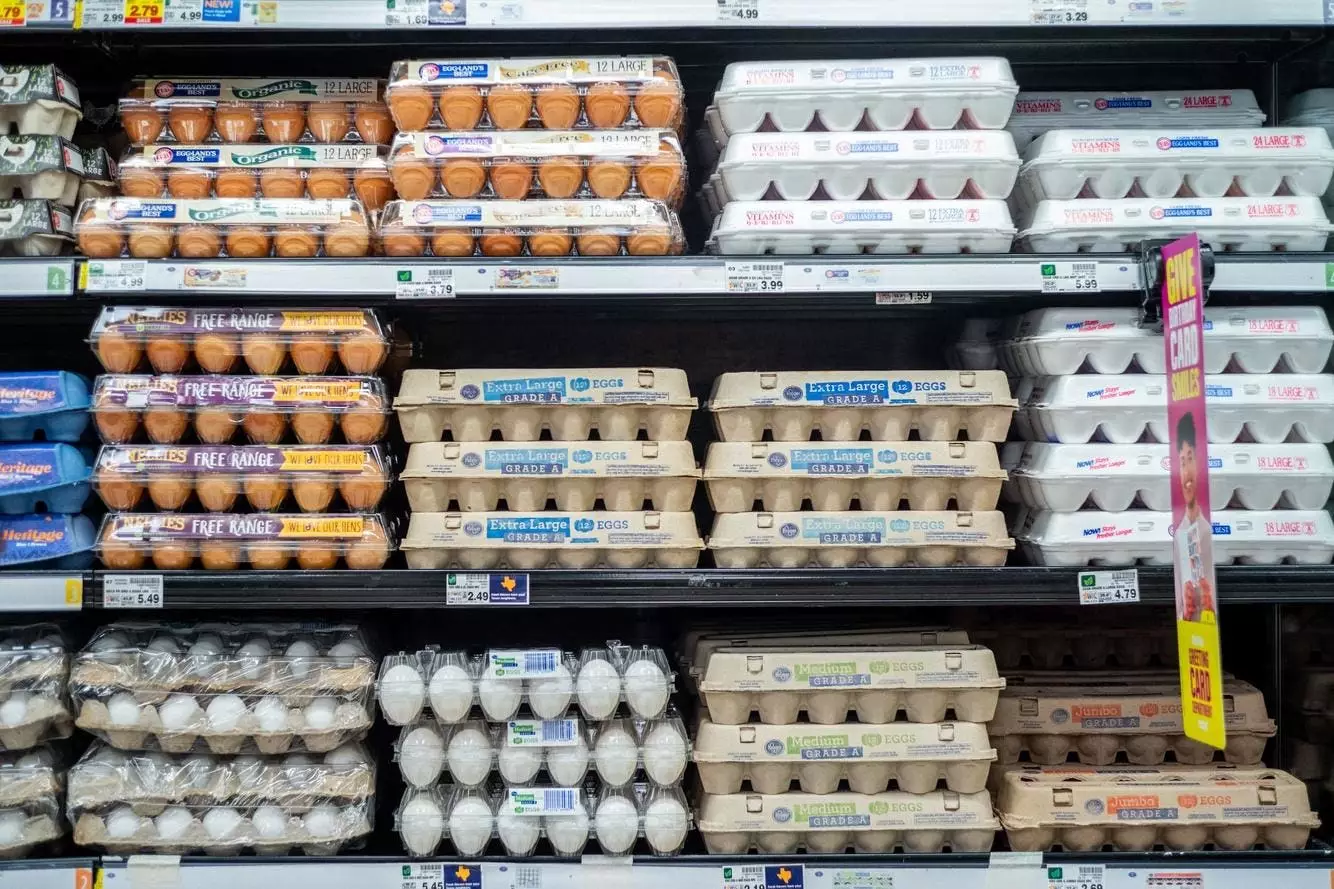Eggs have traditionally been more than just a breakfast item; they are a staple in the culinary landscape, cherished for their affordability, nutritional value, and versatility. However, as we move into 2025, the dynamics surrounding eggs are shifting dramatically, primarily due to escalating prices driven by inflation, disrupted supply chains, and evolving consumer behaviors. Recent reports reflect a staggering 53% increase in egg prices year-over-year, resulting in a phenomenon where grocery shoppers are not merely complaining about higher costs but are re-evaluating their food choices and purchasing strategies entirely.
Consequently, the recent escalation in prices has led to diverse consumer adaptations. Many shoppers are gravitating towards more economical options, such as store-brand eggs, while others are opting to purchase in bulk to mitigate costs. However, there are also consumers who are eschewing eggs altogether, substituting them with alternative breakfast items such as oatmeal, yogurt, and plant-based substitutes. This trend signifies a broader cultural shift, where eggs are no longer seen as a non-negotiable kitchen essential but rather a discretionary item subject to intense scrutiny regarding their value.
Interestingly, data from sources like Numerator indicates that eggs are not only becoming more expensive but also increasingly elusive in stores; over half of surveyed shoppers reported instances of eggs being out of stock. This scarcity has profound implications, pushing some consumers to forgo eggs in favor of alternative proteins or pre-prepared food options, leading to significant changes in morning routines and spending habits across the food sector.
The transformation in how consumers perceive and prioritize eggs is significantly informing their purchasing decisions. Price points are now serving as a litmus test for broader economic concerns; while some shoppers are retreating to budget-friendly options, others are embracing premium categories, investing in organic or free-range products. This shift not only showcases a divergence in consumer behavior based on economic capability but also aligns with underlying values regarding food sourcing and quality. Younger consumers, particularly Millennials and Gen Z, are often more willing to spend extra on eggs, reflecting a growing trend of demanding higher standards and ethical sourcing in food.
These trends also reveal regional variations in willingness to pay. For example, food preferences demonstrate that Hispanic and urban shoppers are inclined to splurge on higher-priced egg options, while those frequenting discount retailers like Aldi have a more defined budget, capping their spending below certain thresholds. The interplay of access, affordability, and values has become increasingly complex in this evolving market.
Looking ahead, it’s imperative to consider the potential long-term implications of this shift. As egg prices continue to fluctuate, the historical view of eggs as a household staple may transform, making them seem more akin to a luxury commodity. This echoes patterns previously observed with other kitchen staples such as beef, dairy, and bread.
If current trends persist, there could be several knock-on effects, including a rise in bulk buying strategies, a growing demand for alternative protein sources, and an increased emphasis on premium egg products. As consumers adapt their cooking habits in light of egg shortages, innovative recipe modifications utilizing egg-free alternatives may become commonplace, further illustrating a cultural transformation concerning traditional food items.
Eggs have always held a cherished place in the American diet, representing not just nutrition but also convenience and affordability. However, as we venture further into 2025, the landscape surrounding this iconic food is poised for a substantial transformation. Whether through embracing higher-priced options or pivoting to alternative breakfast solutions, the way we interact with eggs is evolving. This metamorphosis reflects broader economic realities and shifts in consumer values, indicating that the relationship we have with food staples like eggs may never return to its former state. Our approach to purchasing, cooking, and valuing eggs is undeniably on the brink of change, shaping the future of American kitchens in profound ways.


Leave a Reply